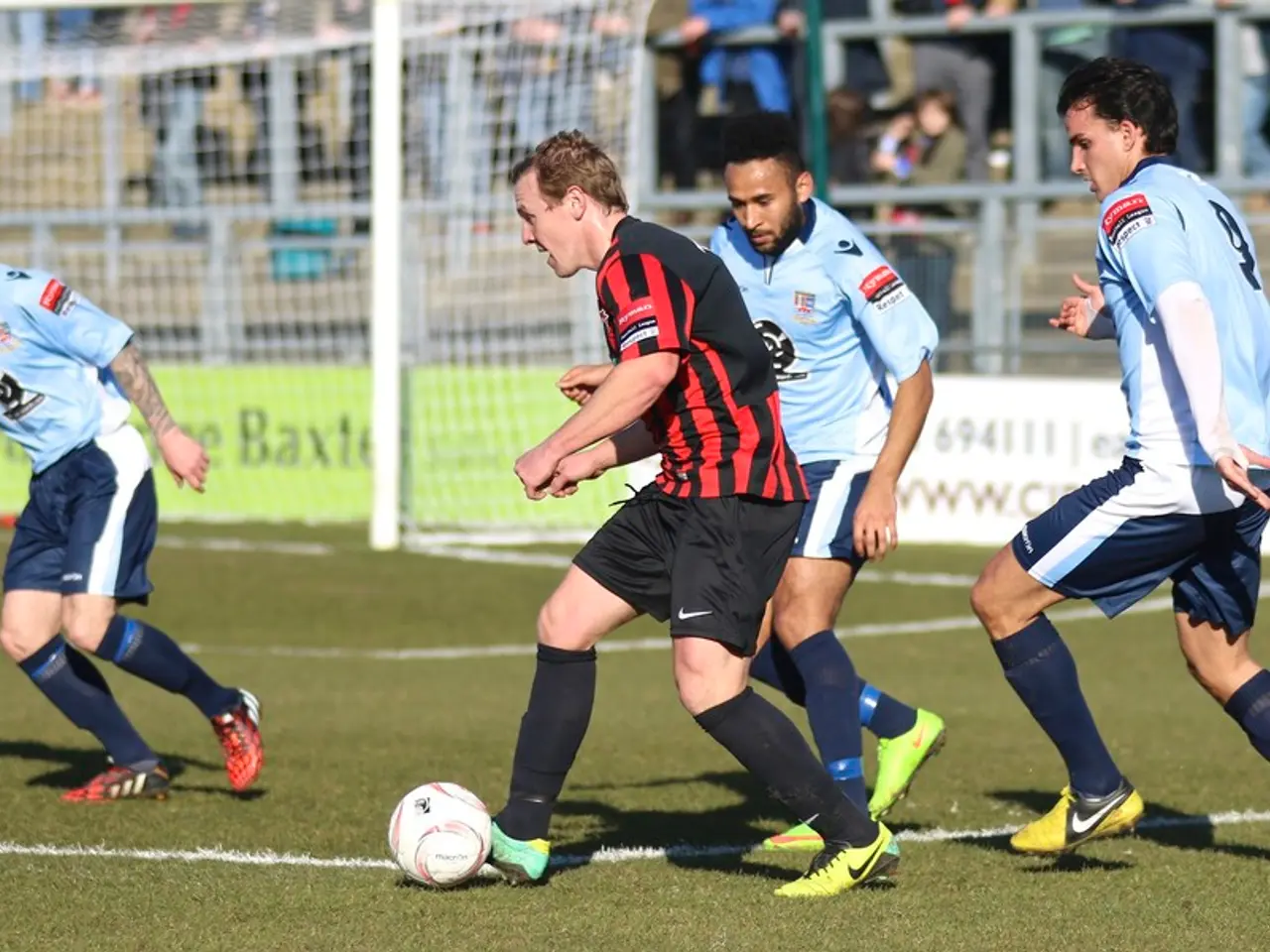"Women are disregarded without dignity"
In the world of football, the success of the German women's national team has been a source of pride for many. However, as Kathrin Längert, a former Bundesliga player, points out in her book "We Deserve More", the underlying conditions in women's football remain problematic[1][3].
Längert highlights several challenges facing women's football in Germany, emphasizing that despite the visibility and celebration at events like the Women's Euro 2025, the sport still has a long way to go[4][5]. She warns that women's football risks becoming "Männerfußball 2.0", simply mirroring the professional structures and problems traditionally associated with men's football without addressing unique needs for women's development and support[1][3].
One of the key issues Längert addresses is the historical lack of interest and investment in women's football. She underlines the importance of creating conditions that are distinctly supportive of women's football rather than just replicating men's models[4][5]. This includes addressing structural, societal, and cultural challenges that still need to be addressed to improve the long-term sustainability and professionalism of the women's game in Germany.
The DFB, as the overarching association, could play a crucial role in this change. They could create regulations, incentives, and licensing requirements for clubs to operate women's and girls' departments[2]. Special incentives could be created for clubs that have girls' teams, such as subsidies for renovations or clubhouses[6]. The DFB could also hold cities and municipalities accountable for improving sports facilities for women's football[7].
However, the issue of financial support is not just about attracting investment, but also about ensuring fair distribution. Many players in the Bundesliga have to choose between football and their real jobs due to lack of financial support[8]. The lack of financial support and inadequate medical care can lead to longer injuries in women, such as ACL tears[9].
Moreover, women and girls in football often face verbal abuse and intimidation, even at a young age. 14-year-old girls are targeted with inappropriate language from the stands at women's games, creating an atmosphere that is not conducive to women's football[3].
Union Berlin has shown that limited means can be used effectively to attract fans and increase the club's prestige[10]. However, the success of the women's national team in Germany is closely tied to the success of the league teams[11]. It must be more beneficial for clubs to promote women's football within their organizations.
Längert's remarks caution against complacency regarding the infrastructures and treatment the sport receives beyond the spotlight of major tournaments. This indicates ongoing challenges in areas such as funding, media coverage, professional environment, and grassroots support necessary for the advancement of women's football in Germany[1][3][4].
References: 1. www.dpa.de 2. www.dw.com 3. www.spiegel.de 4. www.tagesspiegel.de 5. www.zeit.de 6. www.sport-bund.de 7. www.sueddeutsche.de 8. www.faz.net 9. www.n-tv.de 10. www.kicker.de 11. www.dw.com
- In the world of football, the success of the German women's national team has sparked discussions about improving conditions in women's health-and-wellness, particularly in sports like football.
- Kathrin Längert, a former Bundesliga player, expressed concerns about the underlying challenges facing women's football in Europe, highlighting the need for unique support structures distinct from men's football to foster female development.
- The Premier League, along with other European leagues, is urged to step up in addressing these issues, not just through financial investment, but also by ensuring fair distribution and addressing structural, societal, and cultural challenges in womens-health and sports.
- Verbal abuse and intimidation pose a significant health-and-wellness threat to young girls in sports, with reports of 14-year-olds being targeted during women's football games, necessitating stronger protections for female athletes at all levels.




